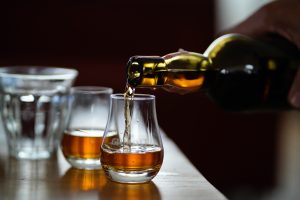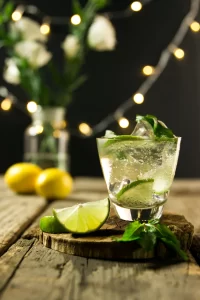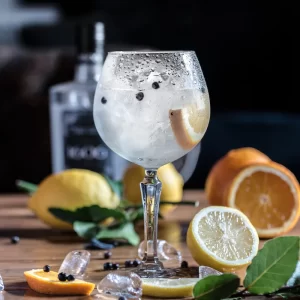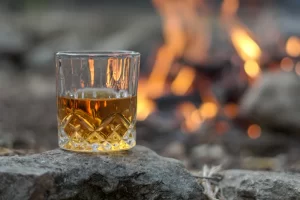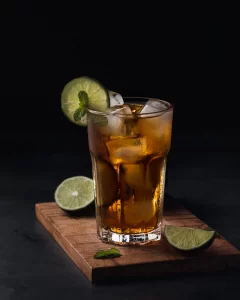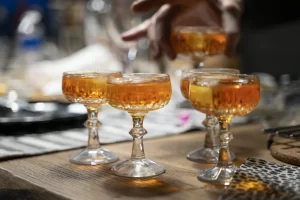Colorado Liquor Laws and Regulations
If you want to open up and operate your own distillery in Colorado, then you need to know the state’s liquor laws and regulations by heart.
Each state in the US has its own liquor laws, regulations, fees, and more. This can make it difficult to know how you need to legally operate your own distillery. If you are thinking about opening up a distillery in Colorado, here are all the liquor laws and regulations you need to know. Check out the guide below!
Colorado Liquor Laws: The Basics
First, let’s cover the basics.
In Colorado, you need to be at least 21 years old to legally drink alcohol.
You also need to be at least 21 years of age to work in a bar or package store – this includes people who work in distilleries and handle or serve alcohol. However, there is one exception to this law – if you are 18 years of age, you can serve alcohol in a restaurant as long as there is a supervisor present who is at least 21 years of age.
Licensing Requirements
Owning a distillery in Colorado is legal so long as you have the appropriate license. If you still have any alcohol either for consumption or resale without a license, then you are breaking the law in Colorado and could face some serious penalties.
So, your first step to distilling alcohol in Colorado is to get your license.
There are multiple manufacturing and importer licenses issued to businesses that produce or import alcohol and the differences depend on the type of alcohol they produce. The main three manufacturer licenses are for licensed breweries, licensed wineries, and licensed distilleries:
Licensed Breweries
Produces beer, may operate one sales room where the beer can either be sold directly to customers for direct consumption either on or off the premises.
Licensed Wineries
Produces wine, can conduct tastings, and sell wine (including from other wineries) on the licensed premises and sales room for consumption. Also can sell food, non-alcoholic drinks, and merchandise.
Licensed Distilleries
Produces spirits, can conduct tastings, can only sell the spirits they manufacture themselves to customers on the premises and at one other sales room for consumption either on or off the licensed premises. Also can sell food, non-alcoholic drinks, and merchandise.
A separate license is needed for wholesalers to distribute alcohol from a manufacturer to retailers. These are, again, divided depending on the type of alcohol distributed. However, wine and spirits are combined in this license type while malt liquor requires a separate license.
A third type of license is required in order to sell alcohol. These then split into several individual permits and licenses depending on the type of premises and whether the alcohol is consumed on premises, off premises, or both.
Some examples include the Retail Liquor Store permit, the Racetrack permit, the Art Gallery permit, the Club license, and more.
In 2017, Colorado introduced a new type of license to allow smaller businesses to manufacture, distribute, and sell their alcoholic beverages to customers without needing to purchase three separate licenses.
This because known as the ‘Cross Tier’ license and for distilleries, there is the distillery pub license. However, this license comes with its limitations (see Distillery Restrictions and Laws below).
Each license is only valid for a single year and needs to be renewed. If you fail to renew your license, it will expire and you will no longer be able to legally distill alcohol.
License State Fees
Each liquor license comes with its own fee. When purchasing your first license you will be charged $1,100 from the state and local application fees cannot be any more than $1,100.
Each year, you need to pay another fee again as you renew. You need to pay both the state fee of $50 and the local fee with each renewal application is $100.
There is also a fee for a background check and fingerprint fees – in order to receive your distillery liquor license, you need to submit your fingerprints to your local police department and these departments may charge you a few dollars per individual being printed.
So, the fees that come with owning and running a distillery in Colorado can add up just so you can get your license. Here’s a table with all the fees laid out so you can get a better idea of how much you will pay in fees each year.
| License/Permit Type | State Fee | Local/Town Fee |
| Spirits Manufacturer | $300 | Varies |
| Wine/Spirits Importer | $300 | Varies |
| Liquor Wholesaler | $550 | Varies |
| Retail | Varies | Varies |
| Distillery Pub | $325 | $500 |
It’s also worth noting that distilleries also need to pay excise tax on any alcohol received from out of state. For spirits, this is currently $0.6026 per liter.
Distillery Restrictions And Laws

Once you have your license, it’s important that you keep it – and this means following the regulations of the state.
The distillery pub license allows an establishment to distill no more than 875,000 liters of spirits each year. This means that there is a limit to how much product you can produce each year.
If you violate the terms of your license, you will be assessed for a fine. First violations cannot exceed $5,000 and after that, fines range between $500 to $100,000. Repeated violations can result in you losing your license.
The spirits produced by your distillery can be sold to customers on the premises for consumption, sold to independent wholesalers for distribution, and sold to customers for off-premises consumption under the distillery pub license.
On top of that, licensees can sell up to 2,700 liters of spirits directly to licensed retailers each year and at least 15% of the licensees’ pross on-premises food and drink income must solely be from the sale of food.
Again, violations of these restrictions may result in fines or loss of license.
Other laws require you to include the required signage, selling alcohol between the times specified by your license type, selling to visibly intoxicated people, and selling to people above the legal age for alcohol consumption.
Failure to comply with these regulations and requirements also results in an offense or misdemeanor, and a fine of up to $250 for each offense.
In Summary
So, if you want to open your own distillery in Colorado, you need to know the liquor laws in the state. You need an appropriate license, pay the relevant fees, and follow the laws and restrictions mentioned above.
Remember to renew your license each year and keep within the regulations of your license – and your distillery will soon thrive!
